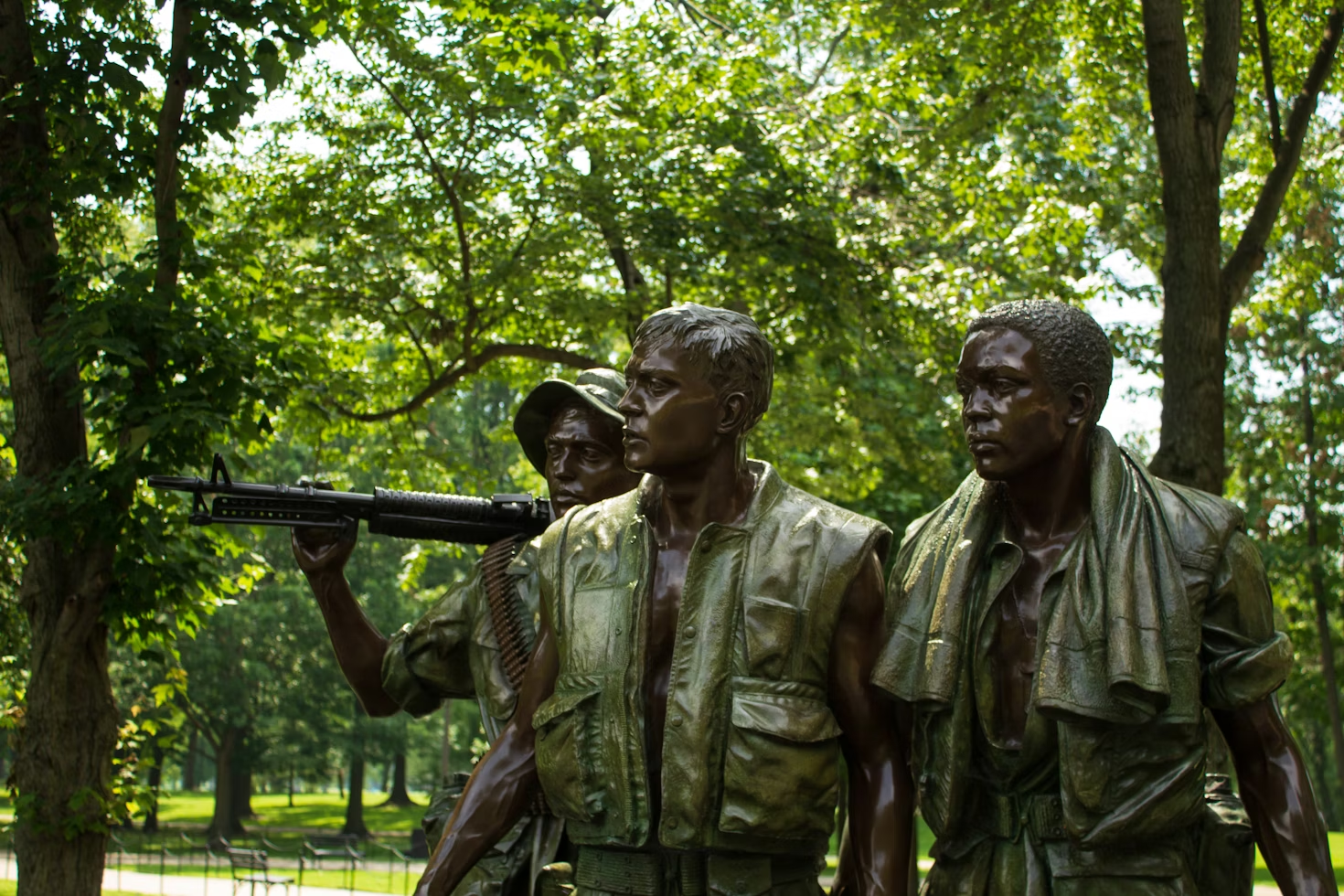Physical Address
304 North Cardinal St.
Dorchester Center, MA 02124
Physical Address
304 North Cardinal St.
Dorchester Center, MA 02124

For some reason, many Americans forget just how long the Vietnam War lasted. It’s always been associated with just the 70s, but did you know that American servicemen fought for almost twenty years? Between 1955 and 1975, nearly 500,000 U.S. Marines served in one of the most brutal wars the country had fought.
It’s been almost half a century since the war ended. Today, the stories that Marine veterans either lived to tell or took to the grave are worth honoring. There’s so much we have learned and will continue to learn about warfighting and its true cost. It would be a shame to forget their service and sacrifice.
In this article, we will explore what it was really like to be a Marine during that time.
Contents
The Vietnam War was fought at a time when the only contact Marines had back home was through letters. Sure, if you were lucky, you could manage a phone call at one of the larger bases. However, this was rare.
To the average Marine in the field, their life involved the men by their side, the jungle, and the enemy. Often, the lines between ‘jungle’ and ‘enemy’ became blurred because of how effective the Vietcong were in their element.
These weren’t pitched battles, and while America would go on to fight many wars against technologically inferior enemies, the Vietcong were arguably a formidable enemy. Their use of guerilla, attack-and-retreat tactics in combination with traps and spike pits around every corner made fighting a nightmare.
The tunnel complexes that the Viet Cong used to travel and move supplies also made the smaller forces seem ever-present. In this context, the ‘Tunnel Rats’ deserve special praise for their courage in entering and sabotaging Viet Cong structures.
For the Marines lucky enough to make it back home alive, many didn’t get off so easily. Vietnam saw the widespread use of Agent Orange, a terribly toxic chemical that many servicemen were exposed to.
The fact that the average Marine was clueless about what it was made the situation even more sad to note. Arnold Punaro, a Marine platoon commander who served in ‘Nam’ recalled how one of the men asked him, “Lt, what is that orange color in the water?” Punaro said he thought it was mud, which made the water appear orange.
Not knowing the dangers of it, he and his men slept in it that night. Over the years, he would attend many funerals of those exposed to Agent Orange. Punaro went on to become a Major General, retired, and is now Chairman of the Secretary of Defense’s Reserve Forces Policy Board. He is also CEO of the Punaro Group and IronArch Technology.
For others, the health issues started even earlier, before even being deployed. As TorHoerman Law observes, Marines at the Camp Lejeune base were exposed to contaminated water between the 50s and the 80s, which led to a major scandal.
Even today, many Marine vets suffer from cancer and a host of other health issues. Sure, the government eventually recognized the problem, and the Camp Lejeune lawsuit payout per person can be as high as $1,000,000. However, the harm was already done.
Marines who fought hard for their country and made it back home might have expected to be treated like heroes. However, this wasn’t to be. The anti-war sentiments were extremely strong during the final years.
Americans questioned the legitimacy of their involvement in Vietnam, and there was heavy opposition to the draft. The media also covered the war in great detail, often highlighting civilian casualties in graphic detail.
As a result, returning veterans were treated with contempt and hostility. Today, we know how serious the feelings of disconnection that veterans from recent wars face. It’s easy to imagine how isolated veterans from Vietnam would have felt after living through hell, only to be treated as murderers by their countrymen.
Close to 100,000 Vietnam-era veterans would take their own lives, which is a shocking reminder of the psychological wounds the war created.
In conclusion, there is definitely something to be said about the purpose behind American involvement in Vietnam. However, the average U.S. marine wasn’t the one making geopolitical decisions.
It is unfortunate that, despite their sacrifice and service to the country, many of them were treated as villains at home. With so many resorting to suicide, it’s fair to say that many U.S. Marines lost their lives not just to the Viet Cong. The American people and the anti-war movement that villainized them also took their fair share.


